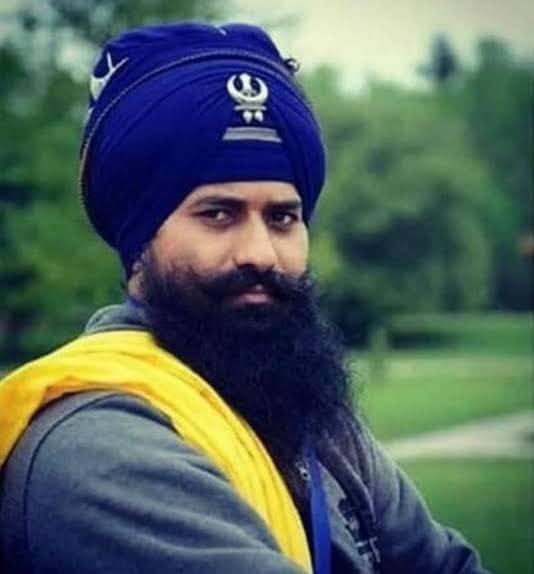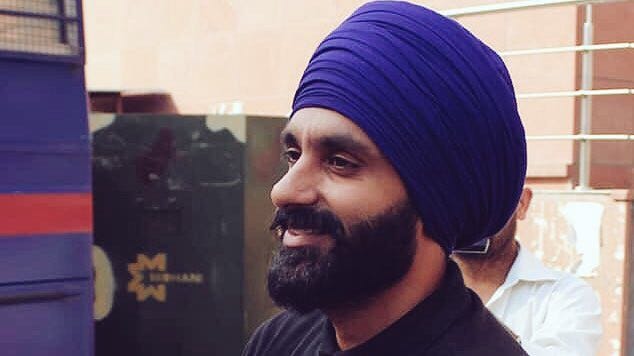Jaggi Acquittal: A Verdict on India's Repression of Sikh Activism
"The same mechanisms of persecution used against Johal—forced confessions, fabricated cases, and the misuse of anti-terror laws—are still being deployed against countless Sikh activists."
After seven long years of arbitrary detention, allegations of torture, and a case characterized by fabricated evidence and political persecution, the courts have finally delivered their verdict on the root case levelled against Jaggi and other Sikh naujawan. He remains incarcerated on seven other charges that rely entirely on the original "Moga case."
Judge Harjeet Singh categorically dismissed the prosecution's case, finding that it "has failed to collect cogent and convincing evidence… regarding participation of the accused in unlawful activities or otherwise." He further stated that the state "failed to lead any evidence that the accused were members of [a] terrorist organization" and concluded unequivocally: "The prosecution has miserably failed to prove the commission of the [conspiracy] offences by all the accused. Thus, all the accused are liable to be acquitted."
Jaggi's case, emblematic of India's systemic repression of Sikh activists, was built on the foundation of forced confessions, coercion, and a blatant disregard for any semblance of justice. His arbitrary detention under the draconian Unlawful Activities (Prevention) Act (UAPA) not only violated international legal norms but also underscored how the Indian state weaponizes anti-terror laws to silence Sikh dissent.
A Case Without Evidence
The court's judgment is an indictment of the entire prosecution of Sikh naujawan in related cases. The supposed star witness, DSP Sukhdeep Singh, "admitted that no incriminating article/thing/document [was] recovered from Jagtar Singh Johal in this case, during his investigation and no documentary evidence was produced or in the file regarding links of other accused with Jagtar Singh Johal during his investigation." Even on the central allegation that Jaggi traveled to Paris to hand over money to Jathedar Harminder Singh of the Khalistan Liberation Force (KLF), the judgment is damning: "He admitted that during his investigation, no material in the shape of letterheads or logo of KLF or any other banned organization… was recovered from the accused. This causes a serious dent in the case of the prosecution."
The judgment also exposes the ongoing use of “stock witnesses” to fabricate evidence against Sikh activists as the basis of UAPA prosecutions and the denial of bail. The judge wrote that the statements of a witness named Kanwaljit was not believable: “How a person never talked to accused person on telephone and suddenly told that the accused came to him and talked him about reviving of militancy and taking revenge of sacrilege of Shri Guru Granth Sahib Ji. As such, no reliance can be placed on the testimony of such witness.”
The prosecution's allegation, which weaved together an elaborate tale of cross-border conspiracies stretching from the UK to Europe, Pakistan, and India, completely unravelled in court. Another police officer conceded under oath that "nothing incriminating" was recovered from Jaggi at the time of his arrest or afterward. In this one case, at least, Jaggi's defence counsel, Bhai Jaspal Singh Manjhpur, was able to stop the court from rubber-stamping the state’s false narrative.
The Weaponization of UAPA
Jaggi's case is not an aberration; it is the modus operandi of the Indian state when dealing with Sikh activists. UAPA is India's favored legal tool for incarceration without trial. It allows the state to imprison individuals for years without producing credible evidence, while the burden of proof falls entirely on the accused.
International bodies, including the United Nations Human Rights Council (UNHRC), have criticized India's use of UAPA to target religious minorities, particularly Sikhs and Muslims. UN experts have specifically called for Jaggi's release, citing allegations of torture and coercion. They noted particularly that Jaggi was "targeted because of his activities as a Sikh practitioner and supporter and because of his activism in writing public posts calling for accountability for alleged actions committed against Sikhs by the authorities." The Indian government ignored these concerns, reiterating its ongoing contempt for international human rights norms and institutions.
Dan Dolan, interim deputy executive director at Reprieve, summarized the prosecution's conduct succinctly: "Seven years of his life have been wasted, with proceedings dragging out, when it was plain all along that there was never any solid evidence. The process is the punishment – the cases are no more than a thin excuse to keep him in jail."
A Political Persecution, Not a Legal Case
Jaggi’s arrest was never about so-called "law and order"; it was a calculated act of political persecution. His advocacy, including his work highlighting Sikh resistance to historical injustices, made him a target of India’s counter-insurgency establishment. The court’s decision vindicates what Sikh advocacy groups, human rights organizations, and international legal experts have been saying for years: Jagtar Singh Johal was framed and persecuted for his political beliefs and religious identity.
The ruling, however, does not erase the irreparable damage inflicted upon Jaggi and his family. Seven years of unlawful imprisonment, the physical and psychological trauma of alleged torture, and the loss of critical years of his life cannot be undone. The state will face no consequences from the courts for this egregious miscarriage of justice, and those who orchestrated his persecution will remain free from state repercussion.

Sikh Mobilization and Resistance Continues
Jaggi's acquittal comes at a time when India’s transnational repression is under heightened scrutiny. From assassinations of Sikh dissidents abroad to the intimidation of diaspora/exiled communities, the Indian state continues to operate with impunity. The same mechanisms of persecution used against Johal—forced confessions, fabricated cases, and the misuse of anti-terror laws—are still being deployed against countless Sikh activists in Punjab and beyond.
Jaggi's verdict is a rare judicial acknowledgment of the Indian state's overreach, but it does not mark an end to the broader struggle. As long as UAPA exists, as long as Sikh political expression is criminalized, and as long as the Indian state is permitted to persecute dissidents under the guise of national security, the mechanisms of Indian repression and the inevitability of Sikh resistance will continue.
A recent string of verdicts in a special NIA court demonstrates a continuity in India's tactics: the creation of specialized courts to ensure that Sikh activists are successfully held in custody under UAPA. In recent days, several seniors in their 70's as well as several naujawan, were sentenced to life for attempting to wage war against the state in a bizarre case which so no recovery of arms nor actual violence or the commission of any other offence. One of the naujawan includes Baba Maan Singh Nihang, who has been accused of participating in the revival of the Sikh armed struggle and multiple attempts to assassinate perpetrators of beadbi.
Freedom is long overdue for Jaggi. But his acquittal must serve as an important moment highlighting the legislated repression of Sikhs in Punjab and a catalyst for effective political mobilization beyond the limitations of grievance-based politics subordinated to state-level electoral politics.


